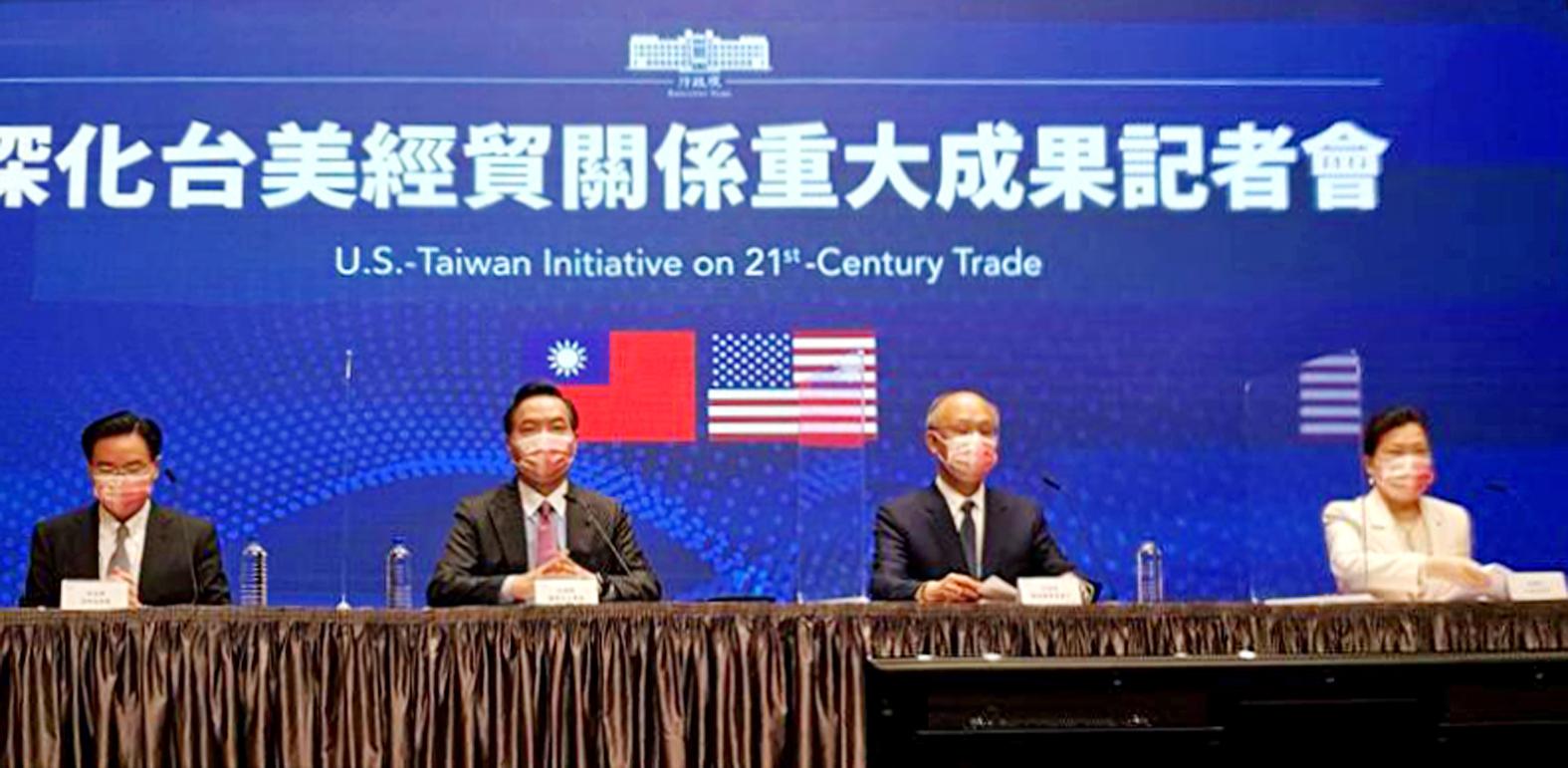Taiwan and the US yesterday announced that they would commence negotiations on a new trade agreement, dubbed the “Taiwan-US Initiative on 21st-century Trade,” signaling a breakthrough after Taiwan was excluded from a US-led regional trade framework.
The first round of negotiations would be held in Washington at the end of this month, Minister Without Portfolio John Deng (鄧振中) told a news conference in Taipei, adding that he would head the Taiwanese delegation to the US.
Deng made the announcement after an online meeting with Deputy US Trade Representative Sarah Bianchi, in which the two sides agreed on the initiative’s name.
The negotiations would cover 11 areas, but would not include tariffs, Deng said.
The 11 areas include trade facilitation, agricultural trade, fighting corruption, common standards on digital trade, workers’ rights, environmental regulations and state-owned companies, Deng said.
The bilateral initiative largely parallels US President Joe Biden’s Indo-Pacific Economic Framework (IPEF), an economic partnership with 13 Asian countries that he launched last week during a visit to Seoul and Tokyo. Taiwan was not included, although more than 200 members of the US Congress had called for its inclusion.
Deng said that although some of the initiative’s areas would overlap with those in the IPEF, Taiwan would continue working toward joining the regional agreement.
“For many years we have been hoping to launch trade talks with the US, and now the trade talks can officially begin,” Deng said. “This initiative provides us with a mechanism for talks, and Taiwan and the US aim to reach agreements on some topics and sign some agreements in the shortest possible time.”
Meanwhile, the two sides would continue the current Trade and Investment Framework Agreement (TIFA) talks, Deng said, adding that negotiations under the new initiative are intended to lead to the inking of new trade agreements, while TIFA talks focus on solving trade-related disputes.
The talks with Taiwan, led for Washington by the US Trade Representative’s office, would supplement several existing dialogues with Taipei, including one led by the US Department of Commerce on export controls and other supply chain issues, a US official said.
Like the IPEF, the initiative with Taiwan would not need US congressional approval because it would not include market access requirements or reduced tariffs, the official added.
The so-called US “fast track” negotiating authority for major trade agreements expired in July last year, and the Biden administration has not asked the US Congress to renew it.
“We think there’s a lot of robust areas that we can cover, that would really deepen our economic engagement, our economic ties, without dealing with market access issues, but, of course, obviously, we’re not ruling anything out for the future,” the official said.
A second official said the new initiative added to other efforts to “highlight the US commitment to the region, specifically economically.”
The US had lacked an economic pillar to its Indo-Pacific engagement since former US president Donald Trump quit a multinational trans-Pacific trade agreement, in part out of concern over US jobs.
Source: Taipei Times - 2022/06/02





















